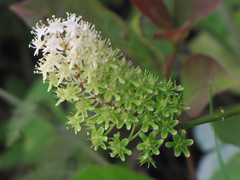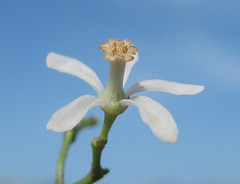 Image by BlueRidgeKitties via FlickrConvenience has hurt our rivers and roadsides because of packaging being tossed away carelessly. Convenience has hurt our family time because of lost time preparing food, eating at the family dinner table, and gardening together. Convenience has hurt our ozone layer. This doesn't mean convenience is bad; it is what you make it. If you allow anything to take over your life it can turn into a negative.
Image by BlueRidgeKitties via FlickrConvenience has hurt our rivers and roadsides because of packaging being tossed away carelessly. Convenience has hurt our family time because of lost time preparing food, eating at the family dinner table, and gardening together. Convenience has hurt our ozone layer. This doesn't mean convenience is bad; it is what you make it. If you allow anything to take over your life it can turn into a negative.Natural insecticides take a little more effort to use if you make them yourself. They take a little more time because they can require multiple uses and degrade quicker. But the rewards you reap from preparing your own natural insecticides can be great. You can join people in discussions on the internet about organic gardening and natural insecticides. You can increase awareness of the benefits so that others are prompted to engage in the use of natural insecticides. You can help promote a healthier world, a healthier family life, ways to make the most out of your garden and landscaping. You can even save money by making your own natural insecticides.
There are rules to follow, of course, like mixing properly. If you mix the wrong ingredients you could either cause more harm or even be wasting your time if the items use cancel out each other's effectiveness. You should understand how to use what you make, how much is safe, what plants or insects will be affected in a negative way so as not to harm the good ones, how to avoid foaming, how to store and for how long.
 Image by tonrulkens via FlickrPrevention is always best. But because it isn't always possible, taking safe alternatives to treatment is the next best thing. People have become disgusted with rising prices, so they decide they can do better if they just make their own products. This can be a good thing or a bad thing. If you don't research and educate yourself, you could be doing more harm than good. Some mistakenly assume that natural means safe, and they neglect to learn about the effects and proper uses of natural insecticides.
Image by tonrulkens via FlickrPrevention is always best. But because it isn't always possible, taking safe alternatives to treatment is the next best thing. People have become disgusted with rising prices, so they decide they can do better if they just make their own products. This can be a good thing or a bad thing. If you don't research and educate yourself, you could be doing more harm than good. Some mistakenly assume that natural means safe, and they neglect to learn about the effects and proper uses of natural insecticides.Cooking is a way to kill harmful bacteria in some instances. But the heat from cooking can destroy the active ingredients of some of your homemade insecticides. Also, the water you use can destroy the effectiveness. If you have hard well water, there may be certain minerals that cause a problem. Chlorine may also pose an issue. So, if you decide to make your own, know how to prepare them properly.
Be sure to check back on Saturday for some natural insecticide recipes you can make yourself. (Or visit http://www.newholisticliving.com/sustainablegardening.html for more information about gardening organically and sustainably.)

No comments:
Post a Comment